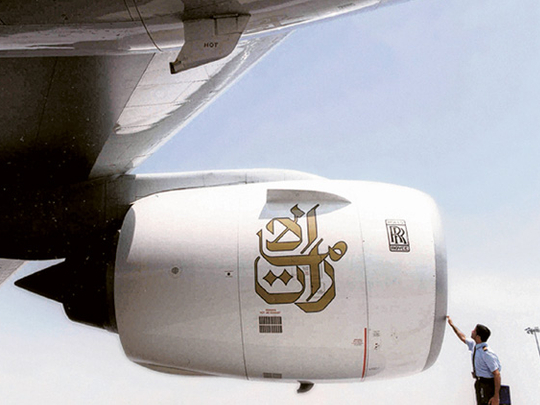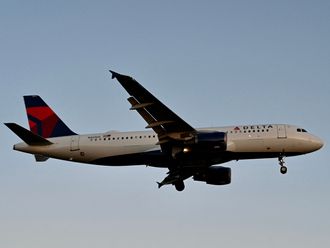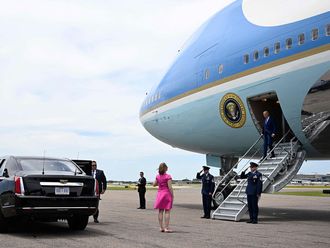
Paris: Demand for seats on Emirates' fleet of superjumbo Airbus 380s is holding steady since the incident on a Qantas A380 this month that triggered the most serious safety scare yet for the world's largest and newest jetliner, the Middle East airline's chief executive said Wednesday.
"There's been no drop in bookings" on the 14 A380s that Emirates flies between its Dubai hub and London, Sydney and 10 other cities, Tim Clark told reporters in Paris.
Emirates has the largest fleet of A380s among the five airlines currently flying the jet, but its planes are equipped with engines made by Engine Alliance — not the Rolls-Royce model that disintegrated during a Qantas flight on November 4, sending out chunks of metal that cut hydraulics and an engine-control line in the aircraft's wing.
Emirates began flying the A380 in 2008 and has ordered a total of 90 of the double-decker aircraft that seats more than 500 passengers.
Clark said the Qantas incident demonstrated that the A380 is a "robust" aircraft because it landed safely with no injuries. He said he's confident the problem affecting Rolls-Royce-equipped A380s will be sorted out "in the next month or two".
Investigators say leaking oil caught fire in the Qantas engine and heated metal parts, causing them to disintegrate before the jetliner returned safely to Singapore with 466 people aboard.
A380s are powered by four engines. Emirates' decision to go with the Engine Alliance motor instead of Rolls-Royce for its 90 A380s was "a very close call". The Engine Alliance motor was favoured because it is "slightly less complex". Price was also a factor, Clark said.
Emirates is also the second largest customer for Airbus' A350 mid-sized, long-range aircraft currently being developed by the European jet maker. Clark said that while its first delivery is scheduled for "2014-2015ish", he would not be surprised if delivery is delayed by a year.
"I'd be a fool to think otherwise," Clark said, noting Airbus' "history of production issues".
The wide-body A350 is designed to compete with Boeing's hot-selling 787. Both models are more energy-efficient than aircraft flying today thanks to a greater use of composite carbon materials.
Airbus' programme was set back when it was forced into a costly redesign after customers balked at an earlier version. The first flight is now scheduled for 2012.










